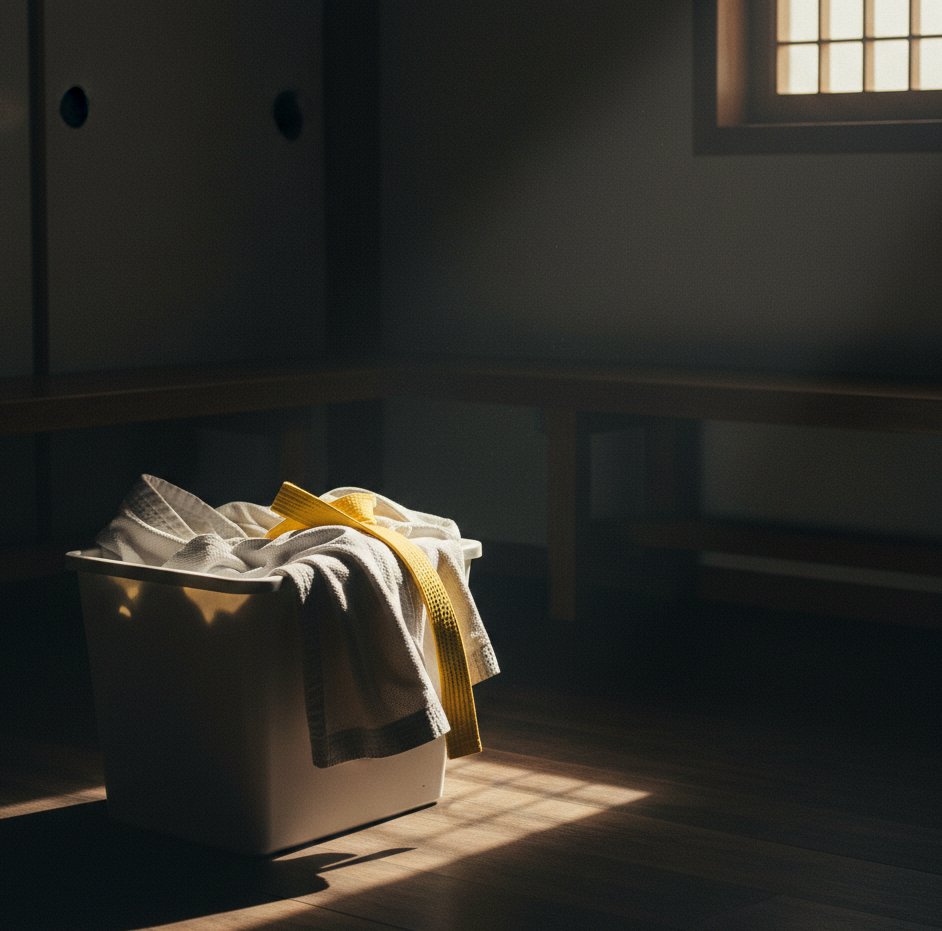When the Dojang Becomes a Cage, and knowing when you have outgrown your environment
We enter martial arts to grow. The bow at the door is not humiliation, but humility. We submit to a structure because the structure promises strength. The master pushes, the student endures. The fire is supposed to forge steel. But fire can also scorch. A bow can also chain. And sometimes the environment meant to sharpen you begins to consume you.
Strictness Can Forge — But Inconsistency Corrodes
A strict teacher is not the problem. Harsh training, long drills, sharp corrections — these are the backbone of progress. Many great masters were merciless in their expectations. And students thrived because the rules were stable. You knew where you stood.
The rot begins with inconsistency. One student is instructed to restrain their progress, under the pretext of showing respect toward higher-ranked students, while others are invited to perform beyond their level.
That is not discipline. It is confusion. The student stops trusting the structure, and begins chasing signals. Psychology calls this intermittent reinforcement — the same mechanism that keeps gamblers hooked. You wait for approval, you gamble your effort, and you stay trapped in the cycle.
I spent fifteen hours a week training, it became my passion. Yet my dedication was not mirrored in challenge. That mismatch corrodes not just growth, but dignity.
Approval Should Be a Gift — Not Oxygen
At first, you train for the art itself: for sharper kicks, cleaner forms, better balance. But slowly, the master’s nod becomes oxygen. One correction feels like salvation; silence feels like collapse.
That is the quiet shift from respect to dependency. And dependency eats away at autonomy.
The Buddha described this as clinging: when thirst attaches to the wrong object, the fruit turns bitter. Respect is healthy, but once it becomes a need for approval, it stops building you and starts binding you.
The true test is this: if you trained the same session alone, would it still feel like growth? If the honest answer is no, then you are not practicing martial arts anymore. You are practicing dependence.
Titles Are Contracts, Not Crowns
Sabomnim carries weight. But the title is not a crown — it is a contract.
The master tests the student. But the student also tests the master: will he handle authority without indulging ego? Will he distribute his attention with fairness?
Fairness is not optional. It is the bedrock of respect. When a student’s loyalty and effort are consistently met with dismissal, the contract is broken.
Strictness should go along with evenness. A master who cannot do this loses legitimacy, no matter how high the belt.
Anger as Boundary, Not Failure
Anger is often mistaken for weakness. But there is a difference between anger that consumes and anger that clarifies.
For months I swallowed dismissal, favoritism, contradiction. I tried to be the “good student.” But suppression always builds pressure. Eventually the nervous system declares: enough.
That evening, it came with cadence. I walked out, dropped my uniform and belt in the bin, and said, “I’ve had enough.” Some would see rage. But in truth, it was ritual. A severance from sorrow.
The Buddha once told the parable of the raft: a raft is essential to cross the river, but a burden once ashore. That uniform had carried too much pain. It was no longer a raft. It was weight.
I put it down.
Strength Is in Recovery
Even the strongest falter. Even champions lose their temper. Strength is not measured by never breaking — but by how quickly you return to balance.
Yes, I raged. Yes, I cried. Yes, I doubted. I even softened, seeing the human being behind the master. But recovery came. And with it, clarity: the Way was never his to give or withhold.
The Way was always mine.
Leaving Is Not Betrayal
Leaving a teacher is not betrayal. Betrayal is staying where your spirit starves.
Leaving is not disrespect. Disrespect is hiding ego behind authority.
Martial arts is bigger than a title, a uniform, or one man’s approval. The Way is discipline. The Way is integrity. The Way is clarity. And that — no master can take away.
The tenets of Taekwondo
From this point forward, this is how I understand and live the tenets of Taekwondo — not as rules to recite, but as principles to measure both myself and those who lead.
Courtesy (예의 ) asks that we treat each other with respect. True respect is never one-way; it must move in both directions.
Integrity (염치) demands that we align words and actions — and to hold ourselves accountable through honest reflection and consistent practice.
Perseverance (인내) reminds us to keep training even when recognition is absent, trusting that effort itself shapes character.
Self-control (극기) means restraining ego, not curiosity and motivation. It is the discipline to stay humble while remaining eager to learn.
Wisdom (지혜) asks us to observe our teacher, as much as we observe ourselves — to discern whether their guidance nurtures our health, growth, and integrity.
Indomitable spirit (백절불굴) is the courage to let go of what no longer aligns and to keep walking one’s own path through uncertainty and discomfort.
Cadence
Strictness can forge.
But only if even.
Respect is mutual.
Not begged.
Anger signals the cut.
Peace follows.
Uniforms burn.
Titles fall.

